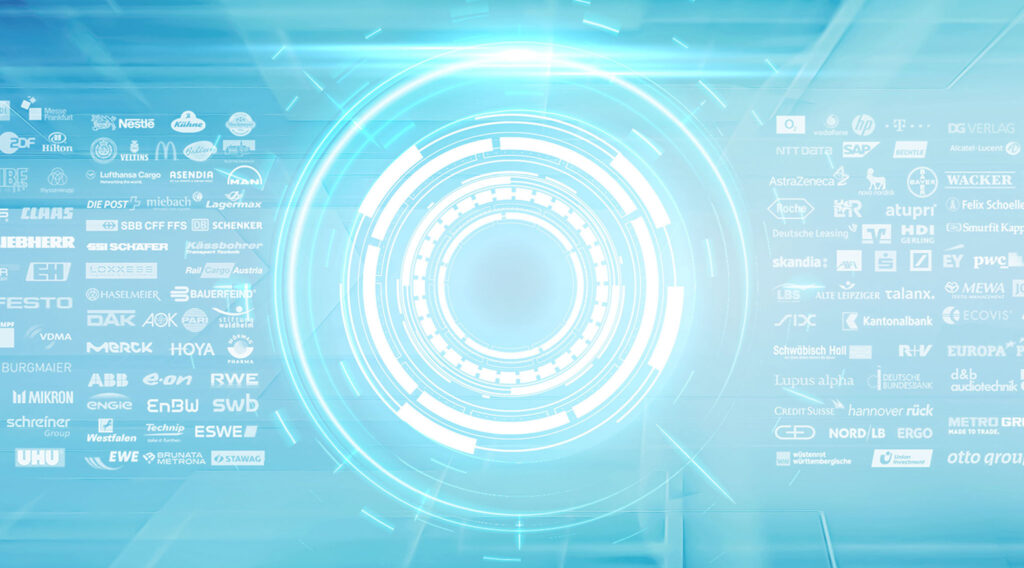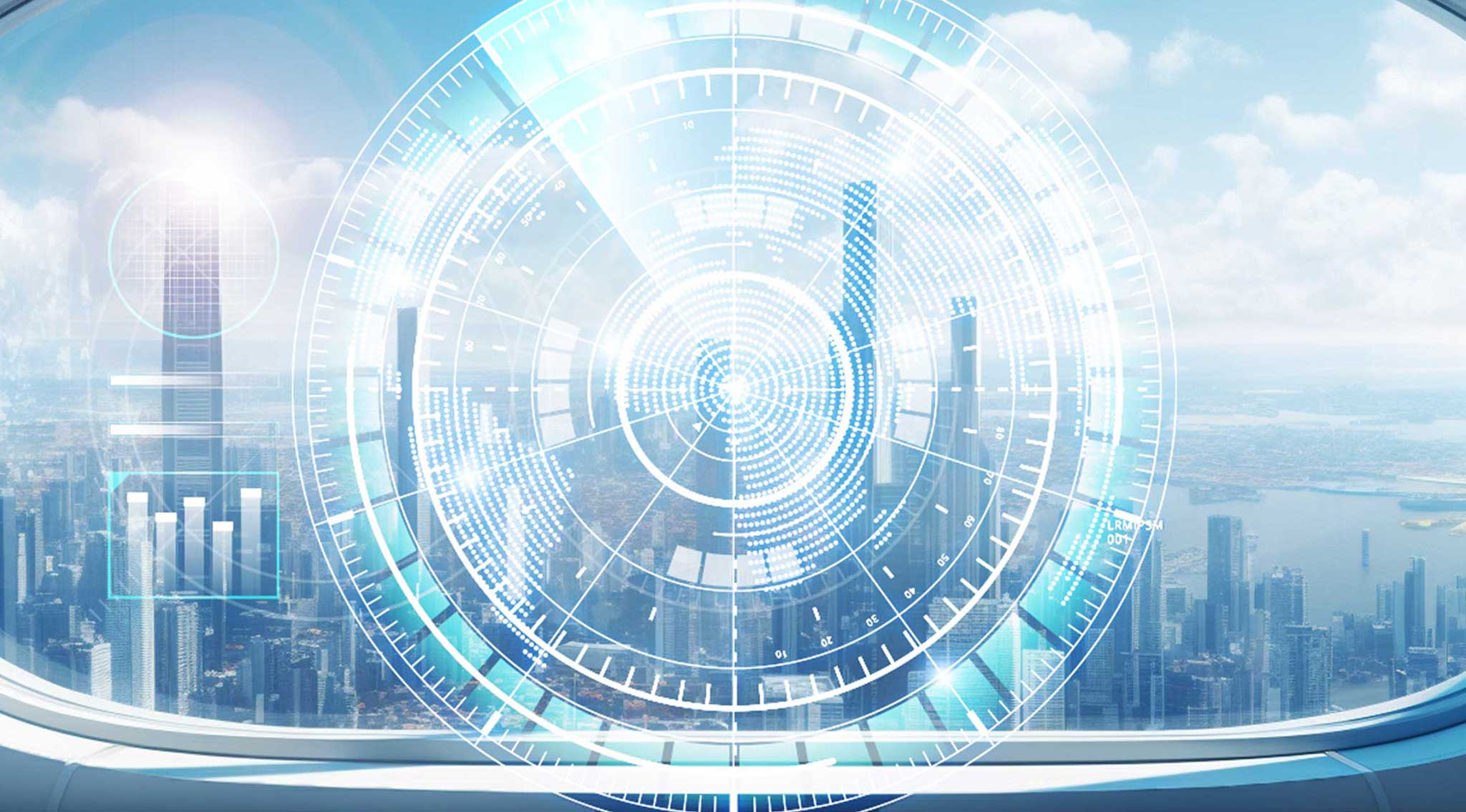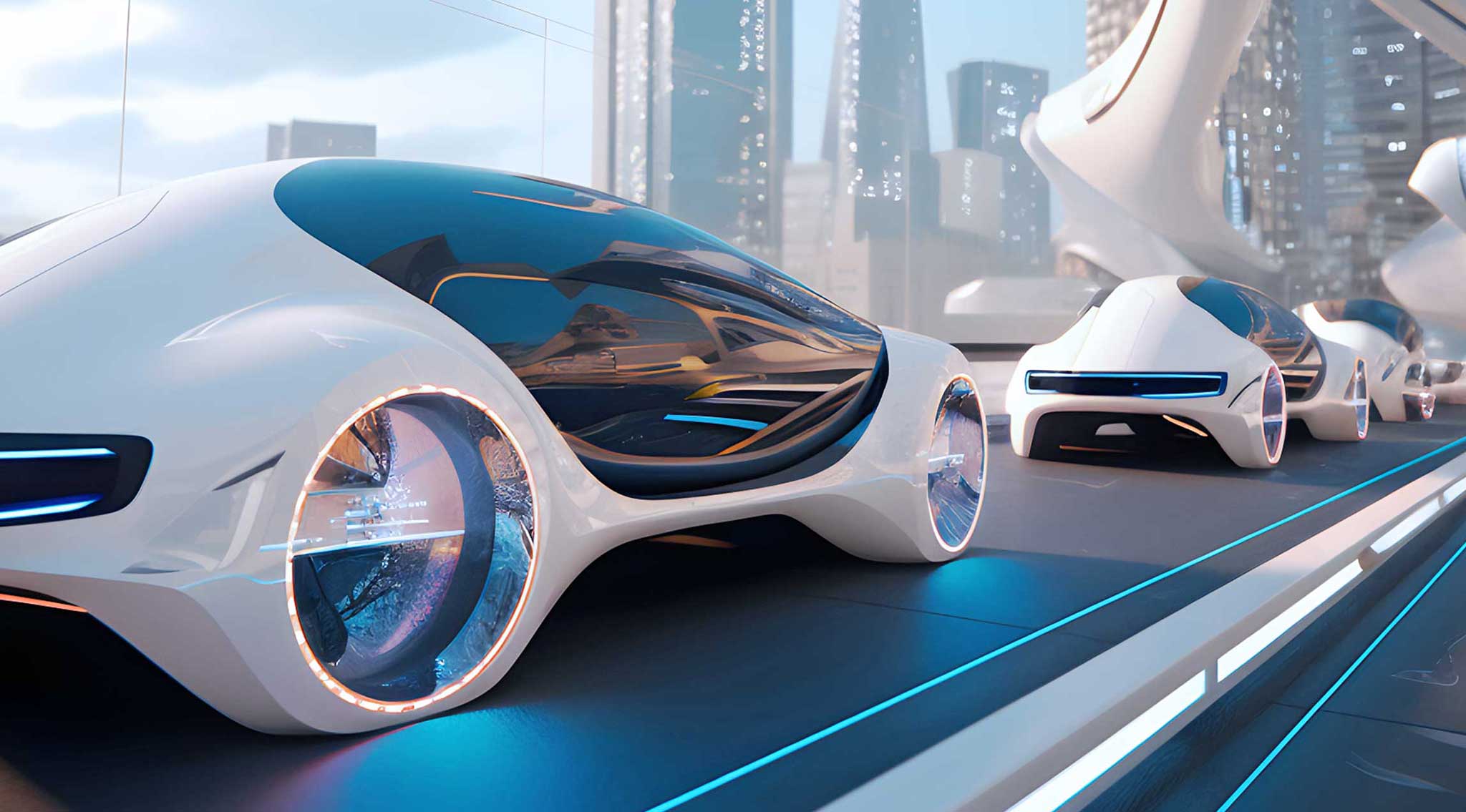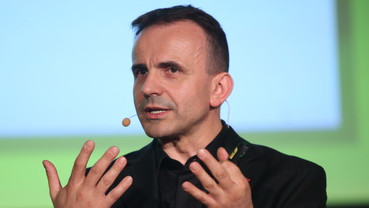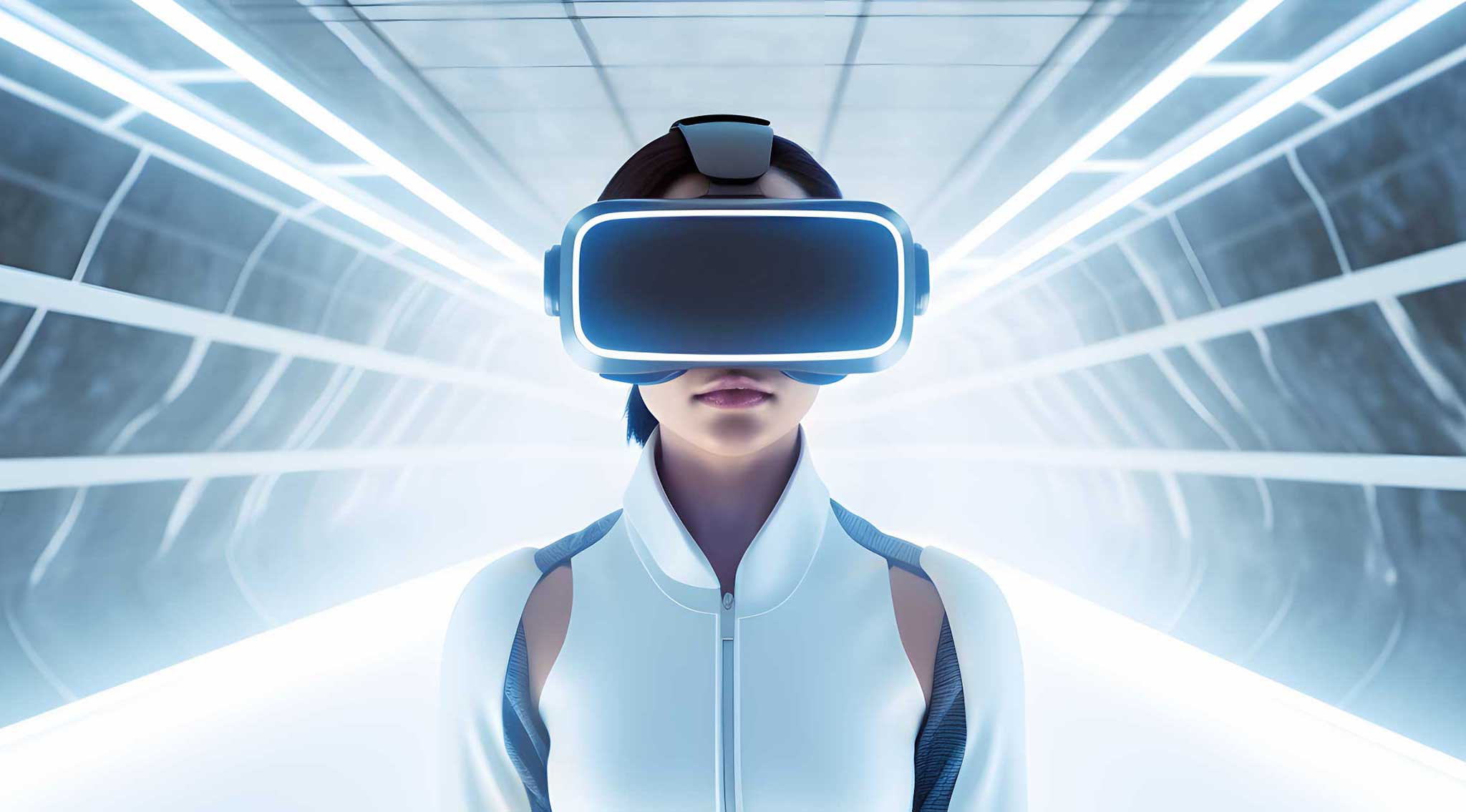In Dubai in the United Arab Emirates, there is a Minister of Artificial Intelligence. It’s not that it’s a department with one and a half temporary positions. No, it’s a real ministry. After all, we now have a Ministry of Home Affairs, which is certainly important. But the UAE has a Ministry of Artificial Intelligence because it recognizes the enormous challenges. After all, everything that humans can do, machines made up of hardware and software can already do today, or will soon be able to do better.
Recognize
We can recognize. We are a sensory marvel. We can see, hear and feel all kinds of things. And yet the machine is already better at it. She can, better than the average person, tell from a face whether that person is lying. And it can tell a person’s sexual orientation from five photos of them. With 91% certainty. With a photo, it is 84% certainty. This is true for men; for women, sexual orientation is somewhat more difficult to discern.
Learning
When we have recognized, we can learn. We are very good at it. We were not born to ride bicycles or build submarines, and yet we can learn. We have been developing the game of chess for 1500 years. You know that for decades we have had chess computers against which a human being has no chance. And then Google AlphaZero comes along, looks at the game, derives the rules, plays against itself for four hours, and wins against Stockfish, the best chess computer mankind has been able to build, a whopping 28-0. We can’t learn that fast and that well.
And what is true for the cognitive, for artificial intelligence, is also true for the physical, for robots. The all-purpose robot Baxter, which costs less than $20,000, can have its arms and fingers guided and literally shown what to do. You don’t have to program it. If you taught it to cut onions, for example, you save that ability, that skill, and upload it to the global skill platform for robots. And immediately every robot in the world can do that. The amount of work we do as humans to transfer knowledge and skills from one person to another is enormous. From kindergarten to schools to colleges and continuing education. The robots and artificial intelligences don’t need that. They simply copy the skills.
Such robots will observe us and they will learn like children, by imitation, by imitating us. They’ll just watch all of our Youtube videos, hopefully filtering well, and then they can do everything we can. Today we represent the world two-dimensionally in photos and video, but soon we will represent it much more three-dimensionally in virtual realities. Then the machines can learn much better what we can do.
Advised
When we have recognized and learned, we can advise. If I ever get seriously ill, with cancer for example, I want this Watson to be used. For several years now, Watson has had the ability to advise on therapy discovery. The system reads millions of medical science documents and recommends the best therapy for a patient’s cancer based on the patient’s genetic profile. And then the second and third best. For the next patient, he simply does the research again, all within a very short time. No doctor can compete with that.
I’d like to have another person looking at it. Why? Because I am a human being. Because I want to be able to look into eyes that I trust and that give me the good feeling that Watson’s recommendation is correct. But I would also like the people who advise me, whether they are doctors, architects or lawyers, to make use of such machines. I would like them to be professional by not ignoring the new tools and being left behind, but to sort of “sit on top” of the rising performance of the new tools, to be carried up in the quality of their performance and in their professionalism. We can all only benefit from this.
If Watson advised me, I might want psychological advice the next moment. AI bots can already do that today, too. You can ask questions, give hints, have dialogues, just like a therapist does. But they don’t rely on limited memory. They will soon be able to provide psychological therapy as well as the best experts on this earth.
AI bots are not a replacement for humans either. They make it possible for therapists to support us more personally and with more time. And they make it possible for millions of people to enjoy personalized yet virtually free coaching in their daily lives.
Communicate
Consulting also includes communicating. We will be able to speak as many languages as we want. Basically, today we need to focus on speaking excellent English and stop learning all other languages immediately. If you want to speak a language privately for pure pleasure, you should of course learn it, but for professional reasons this is no longer sensible.
Artificial intelligence is now capable of making voices so natural that we can no longer distinguish them from a human voice. It is even able to emulate your own voice within a few seconds. The machine will sound like you. Even the appearance of the virtual assistants on the screens is already barely distinguishable from that of a human.
So we’ll soon have access to consultants on any topic, at any time. They will never get tired, never have a vacation and they will cost almost nothing more. Whenever an AI can learn an area of knowledge, humans will be at a disadvantage for standard knowledge. But in the end, we will still want to talk to a human being.
Create
But the creative, that’s our domain! Or? I am not sure. If creativity can be mapped into algorithms, if Deep Learning can learn creative processes, we are no longer the crown of creation in this field either. Many years ago, an AI already composed a symphony for the London Symphony Orchestra. The orchestra played the symphony and you wondered why you didn’t know the piece. Quote: “We were amazed by the quality”. It was that good. Mind you, it was not composed with a software, but with a software.
Today there are software machines that can draw comics from a textual description and even create movies. So the idea is not so crazy that the scripts and novels of the future will be written by artificial intelligence. At least the mass products. They, too, will follow the structure of the so-called “hero’s journey,” as most Hollywood movies and novels do. The first experiments on this are promising.
If AI is being used to develop new types of steel and new vehicle batteries, then it will also soon be the case that we will be using BIM, or Building Information Modeling, to create the fully integrated design of a building and our home at the virtual push of a button. We will determine the cornerstones of the house, its functions, design, style and within seconds we will get eight variants or eight hundred variants from which we can choose the best. Of course, that too with the help of artificial intelligence.
Act
But acting, acting, we will, won’t we? If there’s a bit of bluffing to be done in a purchasing negotiation, the algorithm can’t do that, can it? Yes, it is! An AI played poker against the US masters for thirty days. The human players didn’t stand a chance. “I kept feeling like the thing knew what cards I had in my hand,” said one of the players. And probably that was the case.
That’s why self-driving cars that make significantly fewer mistakes than we do, that drive much more safely than we do, are not as far away as many still believe. 92% of fatal accidents are based on human error. In a few years, artificial intelligence in cars will no longer make virtually all of these mistakes. We will be able to drastically reduce the number of traffic fatalities once again. These are great opportunities that we can take advantage of if we leave the action to the machine itself in a few years while we get on with more important activities.
Fighter pilots have one of the most demanding professions on people. Even very experienced fighter pilots had no chance against the AI “Alpha”. They were regularly shot from the virtual air. And all this on hardware that only cost 35 USD.
Manage
Will we then at least still manage? Probably not. What blockchain technologies, or more precisely distributed ledgers, distributed ledgers of accounts, can do today will take a lot of the administrative work out of our hands. The consulting professions have to document so much, before, during and after the consultation, that they hardly have the time to deal in depth with their clients, customers and patients. Accordingly, we should welcome the fact that we have less administrative work to do. However, hundreds of millions of people worldwide live from simple administrative jobs. There will have to be new professions and tasks for them in the future, and this will be one of the greatest challenges mankind has ever had to face in peacetime.
Decide
Recognize, learn, consult, communicate, create, act, manage. If all this can be done by the machine today already or soon better. Will we as humans at least still make the decisions then? In Hong Kong, a company called Deep Knowledge Ventures has already appointed a sixth board member a few years ago. With the same voting rights as the other five. But it’s not a human, it’s an artificial intelligence that decides on the company’s investments in biotechnology companies.
An AI can assess better than humans which criminals are most likely to be back in prison soon at the time of their release. We humans are less able to do this without help. It is incredibly difficult for us to believe and accept this. But at least the scientific experiment shows that we have our deficits in such assessments and decisions.
Why does the machine still need humans?
This question sounds nasty and disrespectful. What else but man is the only thing that is really important? Everything else is just our tools. But the question is also useful. It helps us to be productive in the search for our role in the future.
As early as the 1960s, we asked ourselves to what extent machines were taking away our jobs. We even wondered about this in the early nineteenth century, when industrialization was just beginning. Back then, one farmer fed four people; today, his work feeds 200 people. And yet we do not have millions of unemployed farmers. We have always found and invented new professions. At that time, no one could have imagined that the profession of web designer would one day exist. Or that it can be a job to spend all day making sure that a manufacturer’s new car smells the way the manufacturer wants it to. Then, as now, we can hardly imagine the professions and the business fields of the future.
We will not have less work. We will have more work. But it will place significantly higher demands on people. Value creation is also gradually being eaten up from the bottom up in the knowledge professions, i.e., starting with simple knowledge work, such as research and data evaluation, and moving toward increasingly complex knowledge work.
What does the machine actually need humans for? She needs it in two capacities. It needs the human being to be useful to him or her. We need to be self-aware of that. If we don’t use it, if we don’t want it, buy it, pay for it, then AI won’t be around for long. And the machine needs the human being to be created, operated, improved and used by him. On these two sides of Artificial Intelligence, the machine needs the human.
It only becomes dangerous when the super-intelligent machine decides at some point that humans are not good enough to develop it and takes over the task of developer and operator on its own. Then we have indeed made our last invention. Then the super intelligent machine develops the even more intelligent machine and so on. Then we will no longer understand it. Then the so-called singularity will have taken place.
Possibly we will then begin to help human evolution by upgrading ourselves with artificial intelligence, merging with it, becoming a cyborg, so to speak, the combination of man and machine. But that is really pie in the sky. It will be decades before we are faced with this challenge.
Capabilities Disruption Inventory
And now? Take a capability disruption inventory. You can do that in Excel. In the first column, write down all the skills that you personally, your company and your team has. Write down everything you can do and everything you get paid for. In the other columns, write down all the artificial intelligences, software packages, and offerings from any startups that promise to make your skills more manageable.
This gives you two types of findings.
First, you know which skills are better performed by technology than by you. You will need to invest less in these skills gradually, or perhaps even from now on. Ideally, to a tolerable degree, you’ll replace human labor with AI yourself right away, while helping the people on your team acquire new skills. Avoid any technology-related layoffs, if possible, so as not to lose the experience and emotional closeness of employees.
Second, after the capabilities disruption inventory, based on the capabilities for which you have not found substitutive and disruptive technologies despite thorough research, you know which capabilities you, your team and your company will still need as people in the future. It is important to invest in these capabilities in a forward-looking manner.
What will you live on tomorrow? Develop your vision!
In order for you to know exactly what direction to invest in artificial intelligence, and in order for you to know what capabilities you will be paid for in the future, you need a future-robust mission and motivating vision for yourself and your team of how and where you will be in a world of artificially intelligent machines in the future.
Follow these links as well:
► The Future Strategy Program for SMEs
► Free video crash course THE FUTURE OF YOUR BUSINESS
► BUSINESS WARGAMING for robust business and future opportunities
► KEYNOTES by Pero Mićić for your employees and customers
Have a bright future!




